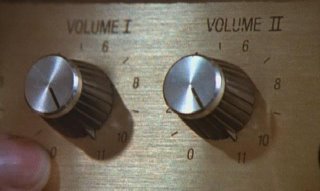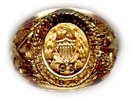
One of the by-products of the Modernity, and its love affair with the scientific method & the illusion of objectivity therein, is the quantification of just about everything.
I get evaluated by my seminary students and I get assigned a number in each category (e.g., knowledge of material, preparation for class, effectiveness of the course, etc.). So, at the end of the semester my 3.92 (on a 4-point scale) in “Teacher demonstrated broad knowledge and understanding of the subject matter” feels pretty good. But, what I really find helpful and/or encouraging are the written comments about myself, the course, and/or its content.
It’s a weird thing, giving grades. I guess I’m not that into it. After I evaluate a student’s preaching I tried to highlight what he did well, but also what needs improvement and how it could be done. I don’t mean to brag, but I think that’s where I really earn my money. Students being critiqued and learning from others being critiqued is where some great learning takes place. But … what’s the main question on the student’s mind? “What grade did I get?” We can all tell who did well and who really needs work, but trying to subjectively determine an objective reflection is one of the more difficult things I do.
I recall one semester at
Texas A&M being
oh so close to a ‘B’ in a class, but still got the ‘C’ which affected me greatly, scholastic probation and loss of scholarship. The difference between 79 & 80, which means something to us about performance, meant even more at that time.
In sports judges assign a number to an athlete (e.g., gymnast, skater) based on how difficult somebody decided a particular feat is and based on how the judge perceives the athlete did. But the fact that not all the judges agree, though trained to see things the same way, is an indicator of the flawed nature of the system.
My point is that we’re taking things which are subjective (Did he/she like it or not?) and trying to objectify them.
Interestingly enough, the quantification of everything permeates Christianity as well.
This is even seen in the realm of spirituality whereby folks like to keep score in order to rank themselves to determine the most spiritual. In Christian circles this can materialize in the amount of Scriptures you have memorized or the number of years you’ve been a Christian or the length of one’s quiet time. Clearly, the one who prays 20 minutes is more spiritual and/or godly than the one who prays 10. Right? Not necessarily; he/she just prayed longer.
This is also seen in church comparisons where bigger is perceived as better. How does one measure success? Faithfulness to the task. After all, it is
God who gives the increase. He gets any and all glory for any growth. The Lord Jesus said He would build His church (
Matt 16:18), and He will/is. We just need to not louse things up.
I used to wonder why seminary chapels brought in the “big guns” to speak, but never the pastor who has faithfully labored in obscurity in a rural location that is declining in population. Surely what he would have to say would be more readily applicable to a group of which the vast majority will not graduate unto the mega church.
I’m now wise enough to know the reason(s). First, the big name draws a crowd. Reputation (i.e., ethos or credibility) comes from name recognition, which tends to come from scoreboard.
Second, seminary students want to be like the big boys when they grow up. Most don’t see themselves “paying their dues” somewhere while they gain valuable experience or invest in the lives of people over decades to see sustained growth, numerically AND in depth of impact.
So, I said all that to say this … while there is some objectivity and quantification has its place, we need to be able to cope with the uneasiness of noting being able to quantify some things. Spirituality is one of those things. While there is a certain amount of time (i.e., time as a Christian) and knowledge (e.g., about God, His Word, one’s self, and one’s world) and faithfulness (e.g., church involvement) necessary for spiritual maturity, the truth is that we cannot judge intentions, hearts, or motives.
Some things can be faked. The heathen can memorize Scripture, read, pray, and attend. True conversion and true change is heart change. Or as Jonathan Edwards so aptly described it, true change is change in the affections (
cf. Edwards’
Religious Affections). One goes from loving the darkness to loving the Light of the world (
cf.
John 3:19).
The true saint will love God (albeit imperfectly) and that will show up in obedience (
John 14:21). He/She will have a love for God and His Word and His people, which will materialize in time invested in prayer, Bible study, meditation & memorization, and involvement in a church.
I encourage those who call on the name of Christ to be diligent in the spiritual disciplines. Spend ample time in prayer and with your Bible. Get heavily involved in your church, not just as a Sunday morning ticket-puncher, but involved serving God and His people in community. But remember that spirituality is not worn on your sleeve. It involves those things, which are quantifiable, but also involves the experiential love of a man or woman for the Lord Jesus. It involves demonstrating the 9-fold fruit of the spirit (
Gal 5:22-23). It involves those things which are beyond measurement via human instrumentation.
Consequently, be diligent, but don’t try to use your diligence as scoreboard to boast or brag or even to compare, for comparison is carnality.



























